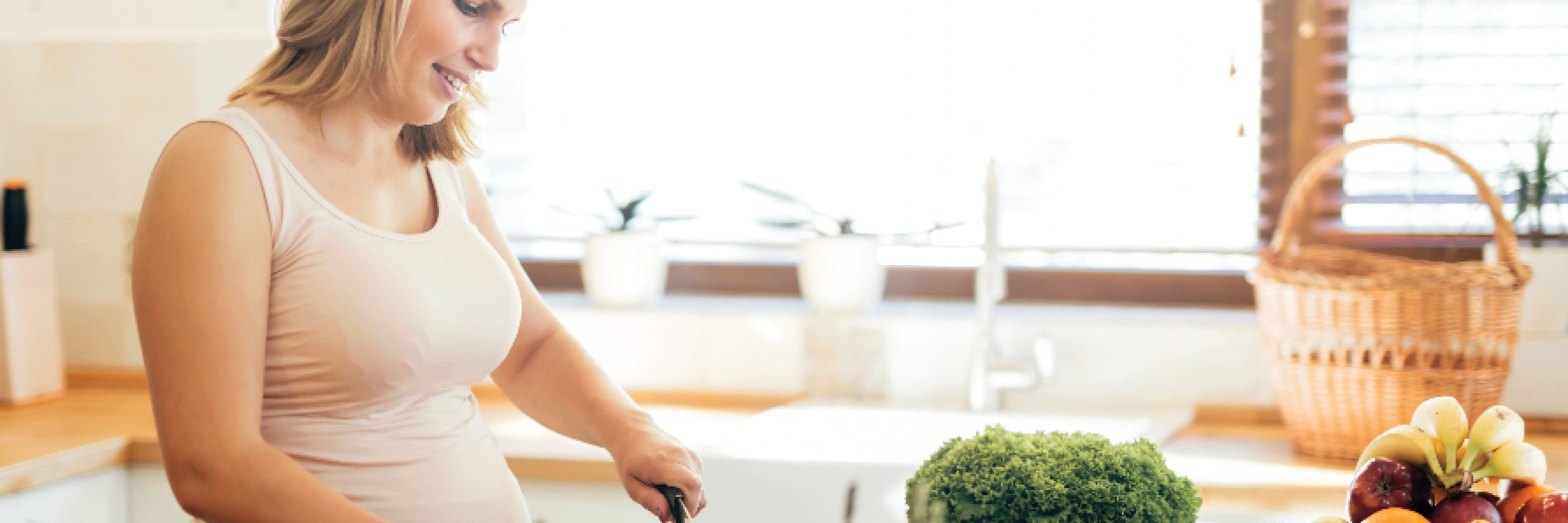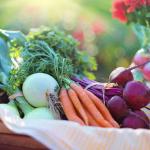
Healthy Eating for a Healthy Pregnancy
A healthy, balanced diet is important for a healthy lifestyle at any stage of life, but particularly if you are pregnant or planning a pregnancy. At this time, healthy eating helps you to feel energetic and provides your baby with essential nutrients.
If you already eat a range of food from the five food groups (see the Guide to Healthy Eating below), then your diet won’t need to change too much. People often say that you need to eat for two in pregnancy. This is not correct. Your nutritional needs only increase slightly after the first 3 months of pregnancy. The quality of the foods you choose is important to help you get the nutrients you and your baby need. Make sure that you drink plenty of water, but limit your intake of foods high in fat, sugar and salt.
For more information on serving sizes, see the Australian Guide to Healthy Eating.
Tips for eating during pregnancy
-
Eat a healthy and nutritious diet
-
Drink plenty of water each day
-
Eat vegetables or salad at most meals. This will help you to have enough fibre to prevent or manage constipation, a common problem in pregnancy.
Eating healthy during pregnancy can be a challenge if you have nausea or are vomiting. Try to:
-
have a snack before getting out of bed (for example, a dry cracker)
-
drink fluids between meals, rather than with meals
-
not skip meals an empty stomach can make nausea worse
-
eat small meals often, rather than a large meal all at once
-
avoid foods with strong smells – cold foods, for example, often have less smell than hot foods
-
avoid spicy and fatty foods
Supplementing your diet
Eating a healthy, balanced diet will help you get the vitamins you need, so taking multi-vitamins during pregnancy may not be necessary. Some supplements, however, are highly recommended. Ask your doctor about supplements to support you when trying to get pregnant and throughout pregnancy.
Folate
Folate is essential for the healthy development of your baby. It is especially important in the months before you fall pregnant and the first three months of pregnancy. If you are planning a pregnancy, you should eat a variety of foods containing folate (such as green leafy vegetables, cereals, fruit and nuts) and also take a folic acid supplement. Folic acid helps protect against neural tube defects in the developing baby.
Iodine
Iodine is a naturally-occurring mineral, essential for your baby’s growth and brain development. A number of foods include iodine, such as seafood, bread (except organic bread), milk and dairy products. The majority of people get most of the iodine they need from a healthy diet. Pregnant and breastfeeding women, however, need more iodine than the average person. An iodine supplement is recommended, as well as a healthy diet.
Vitamin D
Vitamin D is essential for your baby’s growth and development, as well as for your own health during pregnancy. Vitamin D comes mostly from the sun, although small amounts can be found in eggs, and oily fish. You are at increased risk of Vitamin D deficiency if you:
-
have dark-coloured skin;
-
wear full covering clothes for religious or other reasons; or
-
spend the majority of your time indoors.
If you think you might be at risk of Vitamin D deficiency, arrange a blood test with your GP so you can begin supplements in your diet if needed.
Foods to avoid during your pregnancy
Hormone changes in pregnancy weaken the immune system, making it harder to fight off illness. For this reason, it is better to avoid the following foods during pregnancy to help prevent illnesses and infections that could harm your unborn baby:
-
Raw or partially cooked eggs
-
Raw or uncooked meat
-
Processed meats
-
Care should also be taken when eating other foods. For more information on how to reduce the risks, see the NSW Food Authority brochure.
-
Stuffing from chicken or other poultry
-
Liver products
-
Some soft cheeses
-
Unpasteurised (raw) dairy (milk, yoghurt, cream)
-
Soft serve and fried ice cream
-
Raw or cooked and chilled seafood
-
Pre-packaged salads, including buffets and salad bars
-
Bean sprouts
-
Store-bought sushi
-
Rockmelon

Other useful links:
Related Articles:
Healthy Weight Gain in Pregnancy



